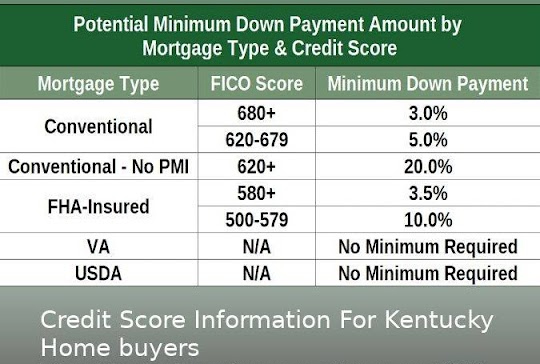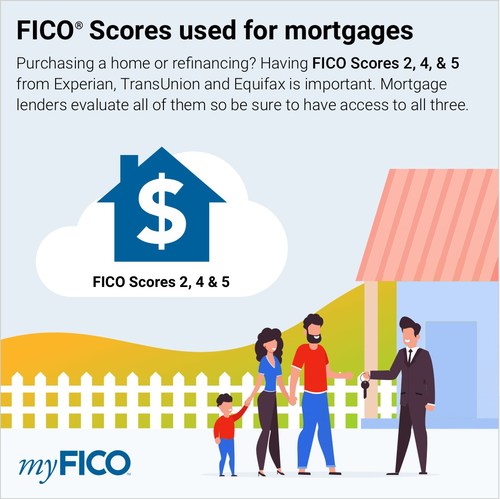Your lender needs to know everything about you for the application, but actually, all the lender needs to know about is employment, finances, and information about the home you’re buying (but you can be pre-approved before you choose a home). You will, however, need to provide quite a few details about these topics. The goal is to arrive at a monthly payment you can afford without creating financial hardships. Here's an idea of what lenders consider when they are qualifying you for a loan:
Your household income and expenses
Lenders look at your income in ways other than the total amount; how you earn it is also important. For example, income from bonuses, commissions and overtime can vary from year to year. If these sources make up a large percentage of your income, your lender will want to know how reliable they are.Your lender will also consider the relationship between your income and expenses. Generally, your fixed housing expenses (mortgage payment, insurance, and property taxes, but not repairs or maintenance) should not be more than 28 percent of your gross monthly income, although this is not an absolute rule. Your lender will also consider other long-term debts, such as car loans or college loans. It is a good idea to bring the following when you meet with your lender:
Income
Employment, salary and bonuses, and any other source of income for the past two years (bring your most recent pay stub, previous year’s W-2 forms, and tax returns if possible)
The most recent account statement showing the amount of any dividend and interest income you received during the past two years
Official documentation to support the amount of any other regular income you may receive (alimony, child support, etc.)
Job stability is a factor that a mortgage lender will look for, and two years at your current job helps, but this also is not an absolute requirement. If you change jobs but stay in the same line of work, you should not have a problem — especially if the job change is an advancement or increase in income.
Credit score
Your credit score also helps to predict how likely you are to repay the mortgage debt. Credit scores will determine if you qualify for the loan, what your rate is, and mortgage insurance payments each month.
Typical fico scores wanted for an automated approval run around 620 for an FHA loan and VA loan, 640 for a USDA, 640 for a KHC Loan with Down Payment Assistance, and 620 for an AU approval for Fannie Mae Loan.
It is very possible to get a mortgage loan with a lower credit score than 620 with a FHA loan or USDA loan. FHA will allow you to go down to a 500 credit score with 10% down payment and a 580 credit score or higher will allow for a 3.5% down payment.
Lenders will create overlays so some lenders will create a higher credit score threshold than what FHA or USDA says on paper in their official guidelines.
USDA loans and VA loans do not have a minimum credit score requirement, but most lenders will create overlays to filter out lower credit profile customers. The reason behind that is due to if the lender sends a lot of loans with lower credit scores to the government agency that insures the loan against default, they will get shut off from doing loans all together which would be detrimental to their business.
A lot of loan officers will work with you on your credit report to get your scores up with a rapid rescore, which is something we offer.
Personal assets
Current balances and recent statements for any bank accounts, including checking and savings
Most recent account statement showing current market value of any investments you may have, such as stocks, bonds or certificates of deposit
Documentation showing interest in retirement funds
Face amount and cash value of life insurance policies
Value of significant pieces of personal property, including automobiles
Debt Information
The balances and account numbers of your current loans and debts, including car loans, credit card balances and any other loans you may have
Underwriting
The lender does the best possible job of ensuring that a borrower qualifies for a loan. The final decision, however, rests with the lender's underwriter, who measures the total risk that the specific investor, who backs up the loan, is taking. Each investor (or investment company) has its own underwriting guidelines (often using statistical models), so while the underwriters evaluate many of the same factors as the lenders, they may look more closely at some areas than others, depending on the guidelines. For example, while the lender may have pre-approved you before you chose a home, by the time you get to underwriting, you will have chosen the property you want to buy, and the underwriter will review the property details closely.However, most of the information used is the same as that used by the lender, but it may be evaluated differently. The underwriter will evaluate the borrower's ability to pay (income), willingness to pay (credit history), and the collateral (property). As underwriters analyze each of these risks (although this is not a complete list), here are some possible guidelines they may use:
Income
Is the income sufficient to repay the loan? Ratio guidelines of 31 percent payment-to-income and 43 percent total debt-to-income are standard, but some programs allow for higher ratios. This is the typical manual underwrite for a score that does not fit the current Automated Underwriting Engines used for Fannie Mae (DO), FHA, VA, USDA and Rural Housing (GUS)
Is the income stable from month to month and year to year?
Has the borrower been on his/her current job and in the same industry for a sufficient amount of time? A minimum of two years is the standard guideline, but exceptions can be made.
Can the income be verified?
Credit
Does the borrower have a good credit score-Typically 740 or higher will yield the best rates and lowest mortgage insurance for a conventional loan?
FHA mortgage insurance and VA mortgage insurance is the same no matter what your credit score is.
Does the borrower have late payments, collections, or a bankruptcy?
If so, is there an explanation that can be provided for the late payments/collections/bankruptcy? FHA, VA requires 2 years removed from bankruptcy and USDA requires 3 years removed from bankruptcy.
Fannie Mae requires 4-7 years after a bankruptcy.
Does the borrower have excessive monthly debts to repay? Typical Debt to income ratios for a no money down loan are limited to 45% of your total gross monthly income for a USDA or KHC loan.
Is the borrower maxed out on credit cards? Pay down your credit card balances to less than 25% of your credit limits before you apply for a mortgage loan.
Collateral
Is the property worth what the borrower is paying for it? If not, the lender will not loan an amount in excess of the value. If the appraisal comes back less than the offer on the house, sometimes you can renegotiate the terms of the purchase contract with the seller and his/her real estate, agent.Some borrowers agree to purchase the home at the price they originally offer and pay the difference between the loan and the sales price. You need to have the disposable cash to do this, and you should assess whether the property is likely to hold its value. You also need to consider the type of loan for which you have qualified.
If you need to move suddenly and have a large loan relative to the original value, and the property has not held its value, you could face a difficult cash shortfall when you go to pay off your loan.Is the property an acceptable type of property, and does it meet coding requirements and zoning restrictions? Is the property comparable to other properties in the area? Surveys are common and are used to get an accurate measurement of the land that goes with the property you are purchasing. The person who prepares the survey should be a licensed land surveyor. The survey shows the location of the land, dimensions of the land and any improvements.Encroachments are improvements to the property that illegally violate another's property or their right to use the property, such as building a fence that is actually on your neighbor's property instead of yours, or constructing a building that crosses from your property to another’s property without their permission. Evidence of encroachments can slow the final approval process.
The down payment
A downpayment is a percentage of your home's value. The type of mortgage you choose determines the down payment you will need. It can range from zero to 20 percent, or more if you wish.A number of loans are available that do not require high down payments, particularly for first-time home buyers. FHA loans, for example, may require less than 5 percent down, and veterans or those on active duty in the military can obtain loans with no down payment at all. USDA loans are offered to rural home buyers with a no down payment option just like VA loans.In addition to down payment assistance offered through Kentucky Housing where you don't have to put a down payment down with income caps for both KHC and USDA loans.These programs may have less strict guidelines for loan approval, such as allowing a higher ratio of payment to income or debt to income. They also may accept alternative forms of credit history if you have not established credit through traditional means — credit cards and car loans. For example, a lender could look at the history of utility payments and rent payments to determine credit worthiness.

Joel Lobb (NMLS#57916)
Senior Loan Officer






